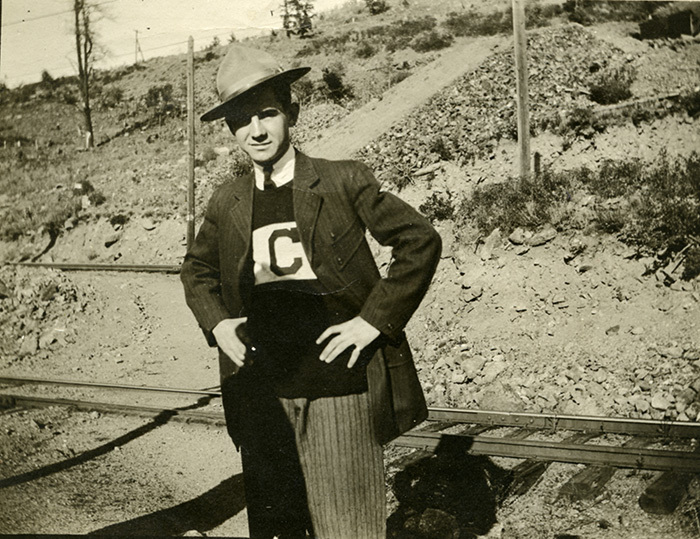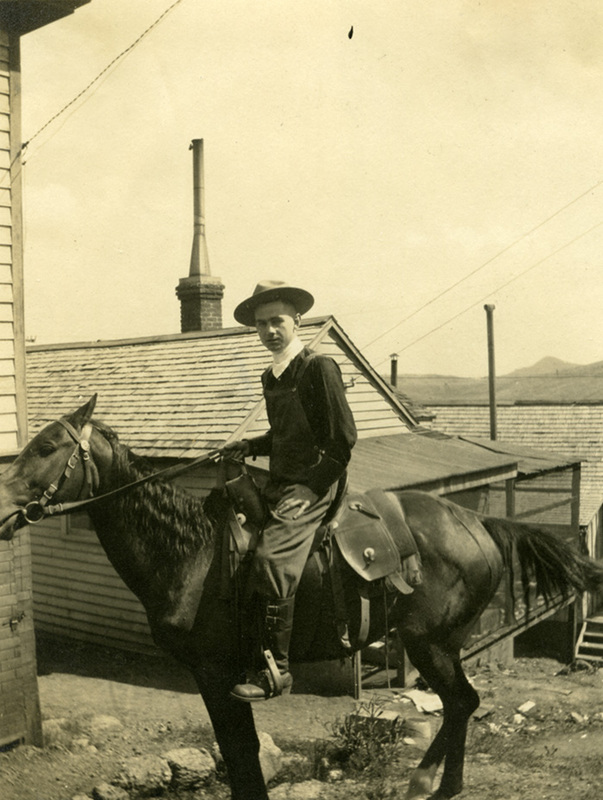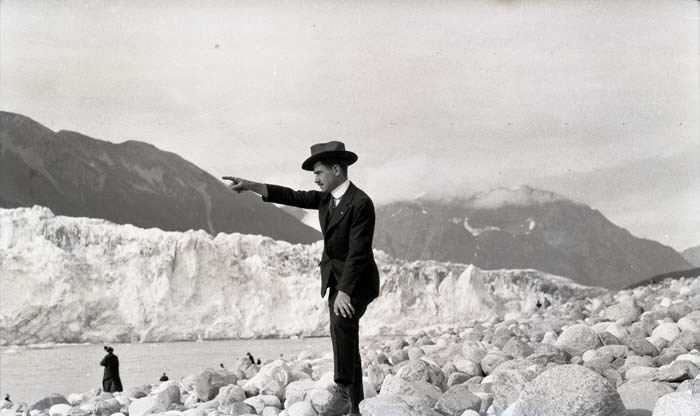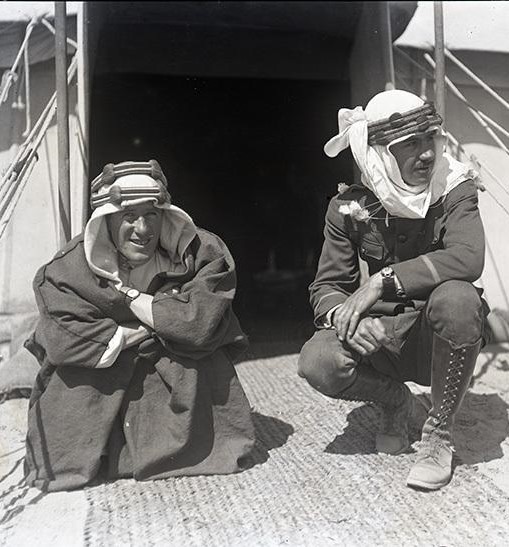
Lowell Thomas (1892-1981)
His remarkable life began in the gold mining boom town of Cripple Creek, Colorado where as a boy he brushed shoulders with miners while learning elocution from his father, a frontier doctor and surgeon. An ambitious term of collegiate study earned him two Bachelor's degrees from Valparaiso University in two years and a Master's degree from the University of Denver in 1913. From there he moved on to the Chicago Kent College of Law where he taught while pursuing his law degree. During this period he also produced articles for the Pacific Northwest Railroad company on the wonders of rail travel and worked as a reporter for the Chicago Evening Journal where he gained notoriety for exposing a man attempting to blackmail a number of wealthy Chicago industrialists. In 1915 he received the Charlotte Elizabeth Procter Fellowship award to continue his studies at Princeton where he lectured on oratory.
From 1915 to 1916 Thomas traveled to the Alaska Territory to produce a travelogue lecture on the last American frontier. A performance in Washington, D.C. impressed the Secretary of the Interior, Franklin K. Lane who contracted Thomas for a series of campaigns on domestic tourism during the First World War. With the US entrance into the war in 1917, Thomas was asked to instead provide a lecture from Europe that would rally Americans to the war effort. Thomas garnered funding from a number of grateful Chicago businessmen and coerced a number of newspapers to accredit him as a war correspondent, although they refrained from any commitment to publish.
In August 1917 he married Frances Ryan and left for Europe with his wife and cameraman Harry Chase. Touring first in England than Italy, Thomas found the bloody war of attrition in the trenches lacking in appeal for American audiences. When he heard of General Allenby's campaign in Palestine he jumped at the opportunity and sped off to Egypt where he stalwartly lobbied the British War Office to allow him to tail the British advance. It was in Jerusalem that Thomas met T. E. Lawrence in February 1918 and followed him into the desert for over a week. In Palestine Thomas witnessed the latter stage of the campaign throughout 1918 that featured the capture of northern Palestine and Damascus and onto the taking of Aleppo. After the armistice Thomas sent Chase back to America to prepare the material as he traveled to Germany to observe the postwar revolution where he was wounded by gunfire in the Spartacus Uprising of January 1919.
Marist University | Marist Archives & Special Collections | Contact Us







